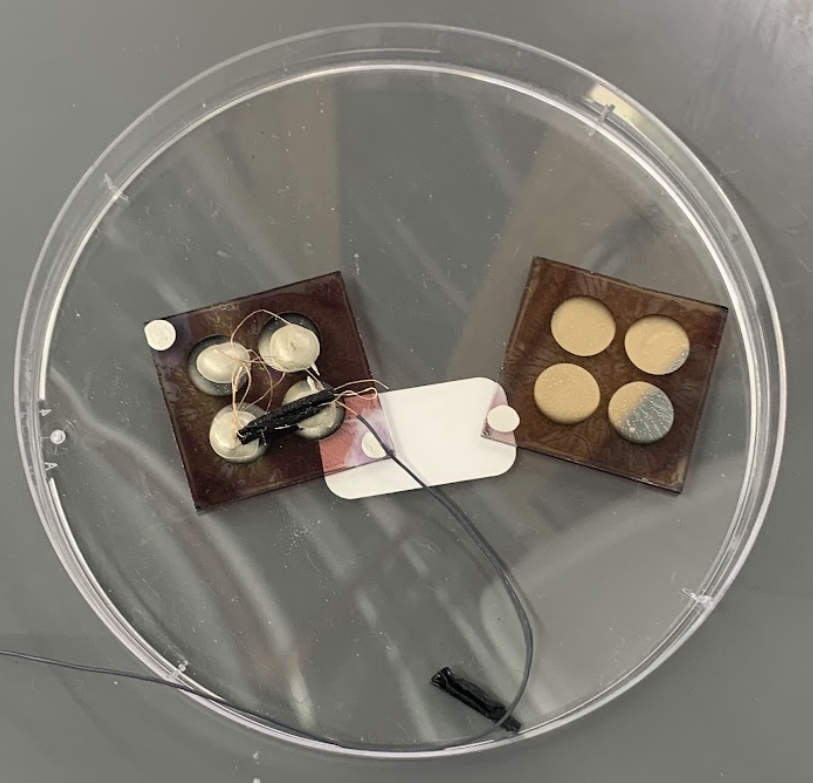

This video contains proprietary information and cannot be shared publicly at this time.
Figure 1

Figure 2

Team 16
Team Members |
Faculty Advisor |
Linnea Bailor |
Dr. Yang Qin Sponsor UConn School of Engineering |
sponsored by
Sponsor Image Not Available
Organic Solar Cells
Renewable energy sources need to be able to adapt to different environments and infrastructures if society is to move away from unsustainable sources. The flexibility and semi-transparency of organic solar cells (OSCs) offer a larger range of solutions towards today’s energy requirements than the more commonly used inorganic solar cells. What separates OSCs from conventional solar cells is the lightweight and design flexibility of organic materials that can be spun onto devices through low-cost high-throughput processes including ink-jet printing and roll-to-roll processing. In addition, OSCs can be made semi transparent and flexible, and thus can be applicable in a much wider application space, when compared with rigid silicon based cells. However, OSCs are relatively less efficient, around 19.2%, than classic solar panels which have an efficiency around 27.6 %. Our group has conducted a literature review on a technique using an applied electric field to “sweep” electrons toward the conductor and has constructed a preliminary prototype for testing. The improvement of OSC technology can be used in a wide variety of situations ranging from the windows of large city buildings to satellite technology. OSCs can even be used in wearable devices. We anticipate that, with the increase of efficiency, organic solar cells can find everyday use as a clean energy source.
